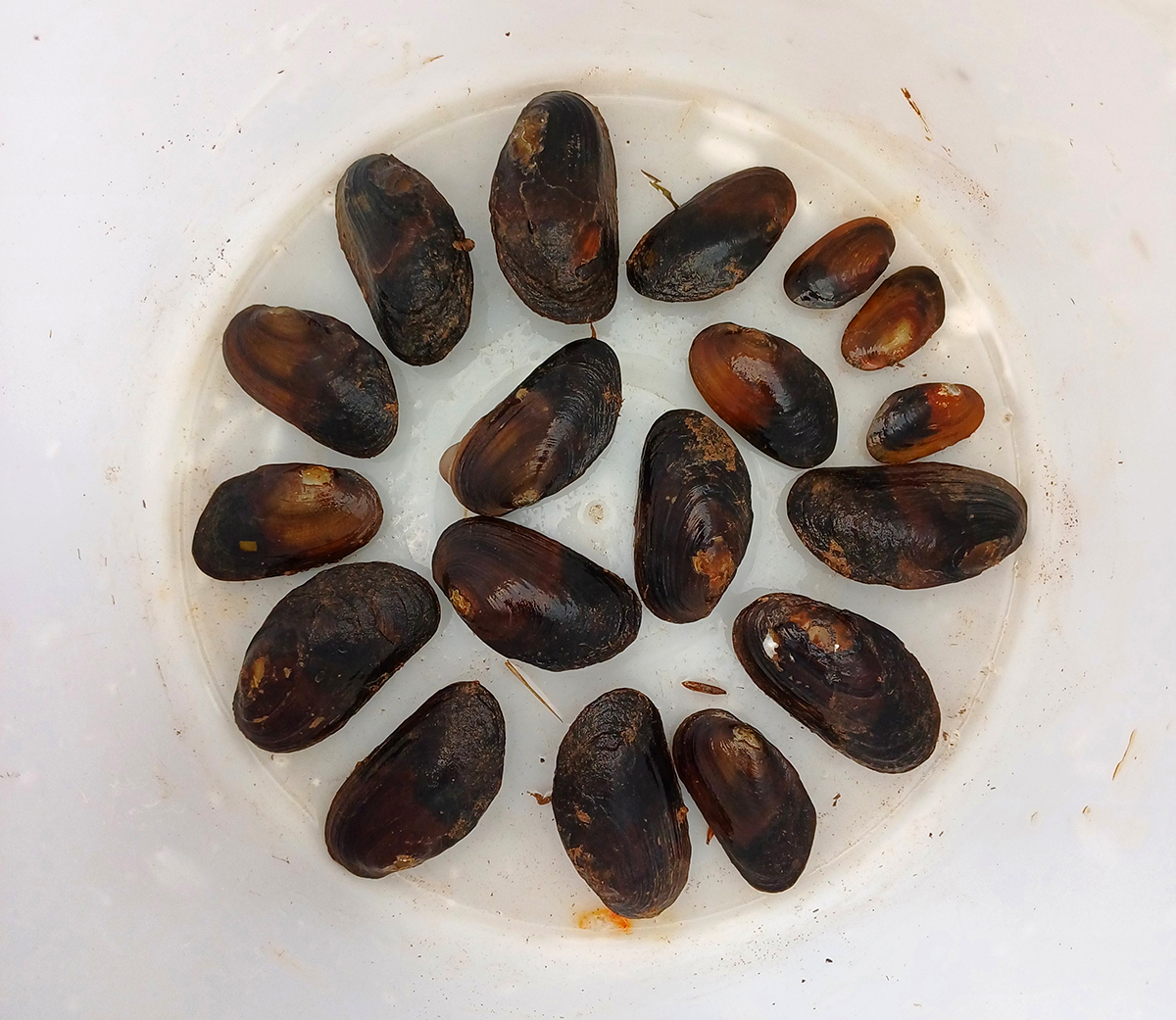Story
Where are our kākahi (freshwater mussels)?

Close up of a kākahi - freshwater mussel.
Mention mussels to the average Kiwi, and green-shelled saltwater mussels spring to mind. But did you know New Zealand also has native freshwater mussels?
There are two species of kākahi in Northland:
- Echyridella aucklandica – Threatened – Nationally Vulnerable
- Echyridella menziesii – At Risk – Declining
We’re building a picture of their distribution so we can better protect them.
How do I recognise kākahi?
Adult kākahi vary in size from 5 to 13 cms and are oval with a dark shell. They can live for up to 60 years, but more commonly live for between 12 and 30 years.
They are found in clean freshwater habitats, ranging from fast-flowing streams to large lakes, where there are low levels of sediment. Native fish must be present, because kākahi are fish parasites for part of their lifecycle, attaching to kōaro, smelt, and bullies as larvae.
Kākahi do not attach to rocks like seawater mussels but use their foot to move around, anchor themselves, and burrow into sediment.
Why are they threatened?
Kākahi face a number of threats, including habitat loss, predation by introduced mammals, water pollution, and declining fish host populations that are needed to complete their lifecycle.
Sedimentation threatens kākahi, because juveniles need clean water and substrate that is not too silty and won’t clog their gills. Because of this, kākahi are a good indicator of the quality of a freshwater ecosystem.
Can I eat them?
Kākahi were a valued mahinga kai species for Māori. However, it is important not to eat them unless they are from clean locations away from farms, wastewater and stormwater discharges, because they can accumulate pollutants, metals, organic contaminants and micro-organisms in their flesh and guts.
How can I help?
If you see kākahi (alive or dead), please tell us where they are. You can submit your sighting using our kākahi encounter form.
You can also help to protect kākahi by taking measures to protect and improve water quality:
- Fence waterways
- Control and manage erosion-prone land appropriately
- Plant natives around waterways
- Keep pine trees away from waterways to prevent needles dropped into the water from smothering kākahi
Northland Regional Council may be able to offer funding to help you. For more information, talk to our Land Management team on 0800 002 004 or [email protected] or visit the Land page of our website.
Pest control is also important. Rats are a particular problem, as they eat kākahi when rodent numbers spike and food becomes scarce.

Studying kākahi.
